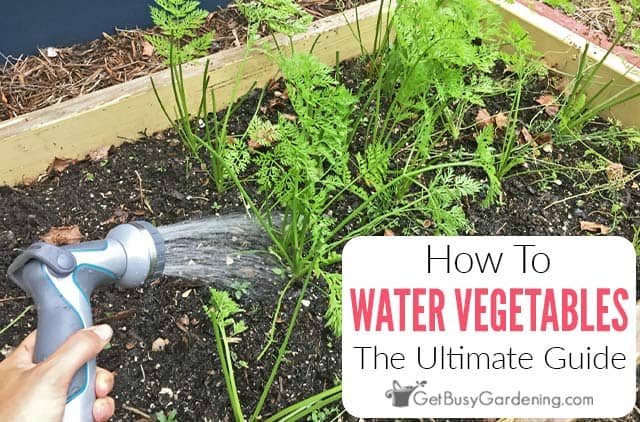Watering a vegetable garden is important. It helps plants grow strong and healthy. But, how often should you water? This question is common among gardeners. In this article, we will explore the best ways to water your vegetable garden.
Understanding Plant Needs
Each plant has different needs. Some plants need more water than others. For example, tomatoes need more water than carrots. Understanding your plants helps you know how often to water them.
Factors That Affect Watering
There are many factors that affect how much water your garden needs. Here are some important ones:
- Soil Type: Sandy soil drains fast. Clay soil holds water longer.
- Weather: Hot weather makes plants thirsty. Rainy days mean less water needed.
- Plant Type: Some plants, like lettuce, need more water.
- Garden Size: Bigger gardens may need more water than small ones.
Signs Your Plants Need Water
It is important to know when your plants are thirsty. Here are some signs:
- Leaves look droopy or wilted.
- Soil feels dry when you touch it.
- Plants stop growing or look unhealthy.
How Often to Water
Now, let’s discuss how often to water your vegetable garden. A good rule is to water every 1 to 2 weeks. However, this can change based on the factors we discussed.
Watering Schedule
Here is a simple watering schedule:
| Plant Type | Watering Frequency |
|---|---|
| Leafy Greens (Lettuce, Spinach) | Every 3-4 days |
| Root Vegetables (Carrots, Beets) | Every 5-7 days |
| Fruiting Plants (Tomatoes, Peppers) | Every 2-3 days |
| Beans and Peas | Every 4-5 days |
This table is a guide. Your garden may need more or less water. Always check the soil first.
Best Time to Water
The best time to water your garden is early in the morning. The sun is not too hot. This helps the water soak into the soil. Watering in the evening is also good. But, it can lead to more plant diseases. This happens because the leaves stay wet longer.
How to Water Properly
Watering is not just about the amount. It is also about how you water. Here are some tips:
- Water Deeply: Water should reach the roots. This helps plants grow strong.
- Avoid Overwatering: Too much water can drown plants. Always check the soil first.
- Use a Soaker Hose: This helps water the soil directly.

Credit: getbusygardening.com
:max_bytes(150000):strip_icc()/ms-how-often-to-water-vegetable-garden-88c64b4fb3fa48a1ac410a84958816a5.jpg)
Credit: www.marthastewart.com
Mulching to Save Water
Mulching is a great way to save water. It covers the soil. This keeps moisture in. It also helps keep weeds away. You can use straw, grass clippings, or wood chips.
Benefits Of Mulching
Here are some benefits of using mulch:
- Reduces water evaporation from the soil.
- Keeps soil temperature steady.
- Helps prevent weeds from growing.
Using Rainwater
Collecting rainwater is eco-friendly. It also saves you money. You can use a rain barrel to collect water. This water is great for your garden. It is natural and free from chemicals.
How To Collect Rainwater
To collect rainwater:
- Place a barrel under your downspout.
- Make sure it has a lid to keep out debris.
- Use a hose or bucket to water your garden. What would you like to know How to build a rain garden?
Adjusting Watering in Different Seasons
Your watering needs change with the seasons. In spring, plants grow fast. They may need more water. In summer, heat can dry out the soil. Check your garden often.
In fall, many plants slow down. They need less water. In winter, most gardens do not need watering. The cold weather keeps the soil moist.
Frequently Asked Questions
How Often Should I Water My Vegetable Garden?
Water your vegetable garden 1 to 2 times a week. Check soil moisture to know when to water.
What Signs Indicate My Garden Needs Water?
Look for wilting leaves, dry soil, and drooping plants. These signs mean it’s time to water.
Is Morning Or Evening Better For Watering?
Watering in the morning is best. It allows plants to absorb moisture before the sun gets hot.
Can I Overwater My Vegetable Garden?
Yes, overwatering can harm plants. Ensure soil drains well and check moisture before watering again.
Conclusion
Watering your vegetable garden is very important. Each plant has different needs. You should check the soil before watering. Use the tips in this article to help you.
Remember to watch for signs that your plants are thirsty. Water deeply and avoid overwatering. Mulching and collecting rainwater can help too. Adjust your watering based on the season.
With these tips, you can have a healthy vegetable garden. Enjoy gardening and the fruits of your labor!
